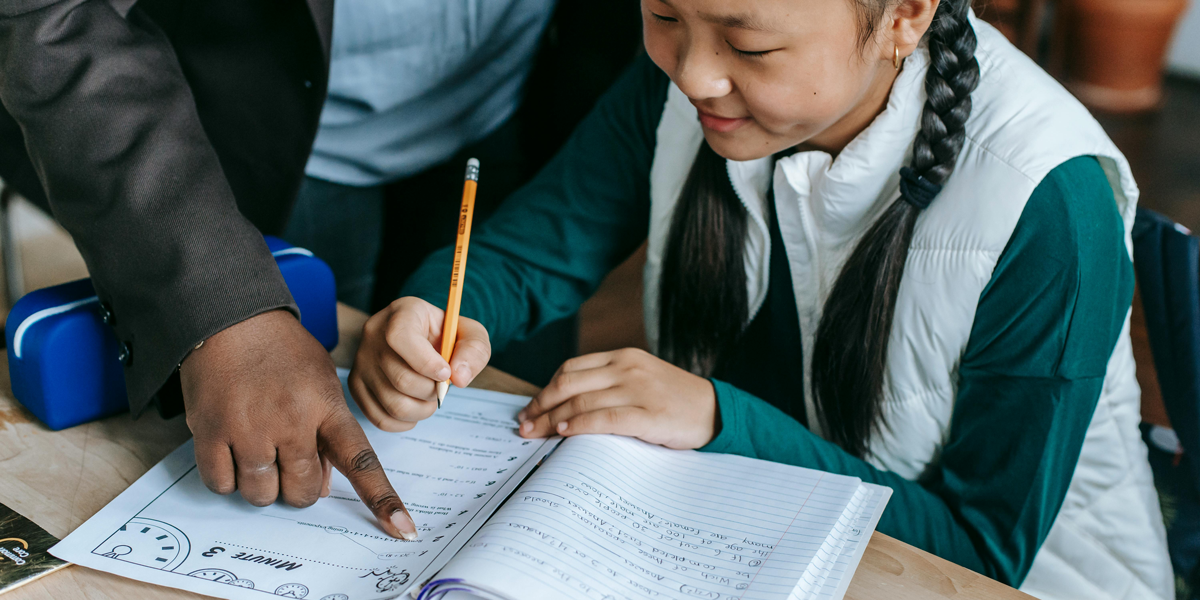
Repairing moral injury: The role of EdEthics in supporting moral integrity in teaching
Opinion + AnalysisHealth + WellbeingBusiness + Leadership
BY Dr Daniella J. Forster John Neil 24 JUL 2025
Society asks our teachers to juggle a range of morally rich roles: mentor, motivator, counsellor, disciplinarian, social worker, colleague, and even co-parent – all while guiding academic growth. Arguably the most important of these is being a role model of integrity.
Integrity is more than a momentary choice; it is a core around which personal identity is woven. Personal integrity shows up in daily promises we keep to ourselves – whether finishing a lesson plan after hours or practising a skill no one else will see.
Moral integrity, philosopher Lynne McFall argues, “consists in standing fast by the principles that define who we are”, even when convenience tempts us to drift. In classrooms, those twin forms of integrity are non-negotiable: professional codes embed them, students sense them, and communities scrutinise them. When public trust wavers, integrity is the educator’s most persuasive lesson.
Daniella Forster teaches teachers, and for many of her students, teaching will be more than a job – it’s a calling rooted in a commitment to make a difference for young people. This sense of purpose forms part of teachers’ moral integrity, shaping how they navigate the emotional and ethical demands of the profession. It is also something that can be learned. In class recently, one of Daniella’s pre-service teachers said “I guess as new grad teachers you feel like you can’t speak up, you feel like you don’t have a professional judgment, like you are not qualified enough, or you don’t have enough experience to make your own decisions. But no, you have a responsibility to protect your own integrity and be able to speak up for yourself.”
The multiple overlapping ethical responsibilities teachers are asked to fulfil create complex relational obligations that can challenge their personal boundaries and values. For example, a teacher in an under-resourced community may feel powerless to support students lacking essentials like books, food, or stability. Systemic issues, like poor funding and overcrowded classrooms, can leave them frustrated and guilty for falling short of their moral duty to provide quality education and care.
Enter EdEthics – a growing field that supports educators in confronting ethical dilemmas, much like bioethics does for healthcare. EdEthicists help shape ethical school cultures, guide policy, and offer moral clarity in times of crisis. During the pandemic, Daniella was part of a team of EdEthicists who offered teachers from seven countries guided discussions about the pressures they were facing and how they grappled with exacerbated moral challenges. Teachers expressed their relief in finding ways to interpret and articulate their ethical responsibilities and values and surface underlying assumptions that were examined more closely.
As education evolves, so too must our understanding of the ethical landscape teachers navigate daily. Strengthening moral reflection and support systems isn’t just good practice – it’s essential for a resilient and values-driven education system.
Moral psychology teaches us that knowing the right path doesn’t guarantee we’ll follow it. Most of us can recall a moment when we acted against our own standards and felt the sting of regret – sometimes only after seeing the fallout for others. Psychologists call the deeper wound moral injury: a breach that “ruptures one’s sense of self and leads to moral disorientation”. Moral injury strikes when circumstances push a person to betray their core values, fracturing the very integrity that guides action. It particularly faces teachers when they feel forced to act against their moral and professional identity. Teachers often face this strain when professional values collide, especially when policies offer little clarity on what should take priority .
A unique form of “teacher distress” according to researcher Doris Santoro is ‘demoralisation’, which occurs when teachers are no longer able to receive moral rewards such as when they can “believe that their work contributes to the right treatment of … their students”. Those who have a “strong sense of professional ethics are more likely to experience demoralisation than teachers who have a more functional approach to their work”. Demoralisation means some of its most vocationally committed teachers leave the profession, but there are ways to resist.
While teachers are primarily tasked with building meaningful relationships to support student learning, they work alongside professionals whose ethical priorities differ – school counsellors, learning support and administrators for instance. These colleagues may prioritise student wellbeing, compliance or test performance, creating tension in decision-making and collaboration. It can be a challenge, too, to raise moral uncertainty with colleagues, or to burden them with our concerns, and find safe spaces to talk with them about sensitive issues.
Moral emotions are one of the primary lenses through which teachers view their workday. Feelings such as gratitude, inspiration, pride – and on the darker side, anger, contempt, disgust, guilt, and shame – shape what we notice and how we judge it. These snap judgments crystalise into moral intuitions that steer classroom decisions in an instant. Shame plays a particularly potent role in moral injury. Where guilt condemns an action, shame condemns the self, making it a powerful catalyst for moral injury when educators feel forced to act against their principles.
It’s crucial that teachers develop expertise in how to identify and address ethical issues common in education and establish structured, collegial spaces for deeper reflection. It is difficult to do this during a school day, but important for self-care and the care of colleagues. Making space for safe, ethically guided dialogue along with the development of skills in identifying and responding to ethical issues in the profession is crucial.
What we wish to see is moral repair. When something feels off or goes wrong, it’s easy to jump straight into fixing the problem. But sometimes, what looks like a simple issue is actually part of something deeper. Undertaking moral inquiry can support moral repair. Asking ‘what went wrong?’ both reflectively and verbally with others as a form of interpersonal thinking, questioning assumptions and shared inquiry is a way to create an opportunity to reconstruct one’s habits and the structures which create harm.
Moral injury is not solved by becoming more resilient to factors causing stress at work. Rather, if teachers were to become more resilient to moral injuries against their professional values, this is likely to look like cynicism, defeat and moral detachment – resulting ultimately in ‘demoralisation’. Turning to EdEthicists – specialists in educational ethics – can help schools move away from harmful policies and toward practices that align with teachers’ living moral values. Their guidance supports educators in maintaining integrity, and the work of moral repair – finding a refreshed moral centre from which to teach.
Renewal begins by creating space for collective moral reflection. Creating structured, collegial spaces – after-school ethics circles, reflective supervision using ethical metalanguage and tools, teasing out case studies, or peer-mentoring sessions – where teachers can surface uncertainties and re-examine difficult moments without fear seeds the conditions for renewal and grows ethical confidence in the profession to navigate moral complexity.
If you are a teacher or educator interested in participating in a co-design process to develop professional learning to address moral injury, contact us at learn@ethics.org.au

BY Dr Daniella J. Forster
Dr Daniella J. Forster is an educational ethicist, researcher, and teacher educator with qualifications in philosophy and as a secondary teacher at the School of Education, University of Newcastle, Australia. An Australian leader in normative case study methodology, professional codes and moral dimensions of teaching, with a concern for education’s role in strengthening justice. Current 2025-2026 ADVANCE Research Fellow. Vice President of the Philosophy of Education Society of Australasia and Advisory Board member of Primary Ethics. Visiting Fellow with Justice in Schools/Ed Ethics at Harvard Graduate School of Education.
BY John Neil
As Director of Education and Innovation at The Ethics Centre, John collaborates closely with a talented team of specialists and subject matter experts to shape the tools, frameworks, and programs that drive our work forward. He brings a rich and varied background as a consultant, lecturer, and researcher, with expertise spanning ethics, cultural studies, sustainability, and innovation. This multidisciplinary perspective allows him to introduce fresh, thought-provoking approaches that energise and inspire our initiatives. John has partnered with some of Australia’s largest organisations across diverse industries, to place ethics at the heart of organisational life. His work focuses on education, cultural alignment, and leadership development to foster meaningful and lasting impact.
Ethics in your inbox.
Get the latest inspiration, intelligence, events & more.
By signing up you agree to our privacy policy
You might be interested in…
Opinion + Analysis
Business + Leadership, Science + Technology
Meet Aubrey Blanche: Shaping the future of responsible leadership
Big thinker
Health + Wellbeing, Politics + Human Rights, Relationships
Big Thinker: Judith Butler
Opinion + Analysis
Health + Wellbeing, Politics + Human Rights
‘Eye in the Sky’ and drone warfare
Opinion + Analysis
Health + Wellbeing, Relationships, Science + Technology




